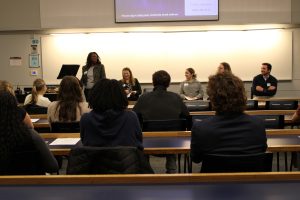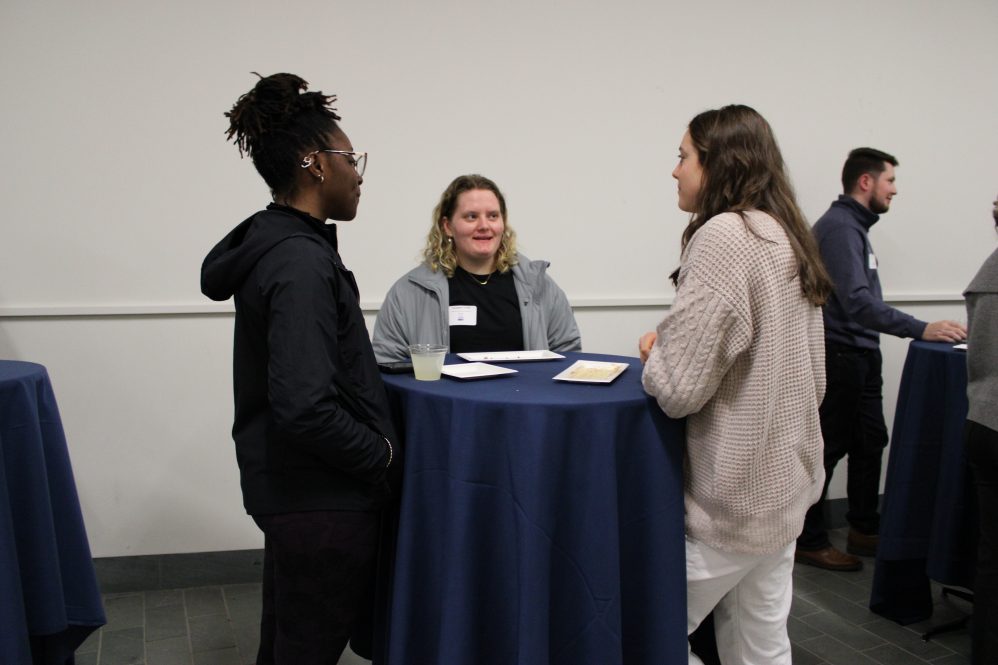University of Connecticut engineering students and alumni recently explored the opportunity of going to law school after obtaining their engineering degree, which provides a rewarding interdisciplinary option for new engineers.
The Law School for Engineers event took place in McHugh Hall on Feb. 26.
The information session offered insight into a variety of career opportunities that combine both engineering and law degrees (juris doctor), such as becoming a patent lawyer or an intellectual property lawyer.
Robert Endrizzi, ‘17 (ENG), ‘23 JD, who spoke to students about practicing law with a background in engineering said, “UConn Engineering students have a bright future ahead of them with many rewarding career paths. As an alumni of UConn Engineering and UConn Law School, it was my pleasure to talk with the current students about the many legal careers well suited to those with an engineering background, including patent law, specifically.”
Eboni S. Nelson J.D., the UConn School of Law Dean and Professor of Law, was a featured speaker among the panel of lawyers and engineering graduates pursuing their juris doctor.

“As Dean of UConn Law, it was my pleasure to speak with UConn Engineering students about their interest in pursuing a law degree,” Nelson said. “Engineers are problem solvers, which makes them well suited for a legal career that centers on addressing clients’ problems specifically and societal problems more broadly. At UConn Law, they will develop skills and knowledge that will equip them to effectively serve their clients and community while advancing justice and the rule of law.”
The presentation featured discussions about what it means to pursue a career in law, transitioning to law from engineering school, and law school admissions advice.
Eric Venables, ‘23 (ENG), ‘27 JD, is a current UConn Law student who spoke about transitioning from engineering to law at the event.
“As engineering students, you’re probably accustomed to highly rigorous coursework,” Venables said. “So, while the adjustment to law school might not be as challenging for you as for non-engineer law students, it’s still very important to have a good support system (friends, family, faculty, fellow students, etc.) that you can lean on during the more difficult times of your legal education.”
The event focused on the rewarding aspects of pursuing a career in law, while also addressing the challenges that come with transitioning to law school from engineering school.
To learn more about the event visit the College of Engineering Undergraduate website, https://s.uconn.edu/lsfe-2025.



